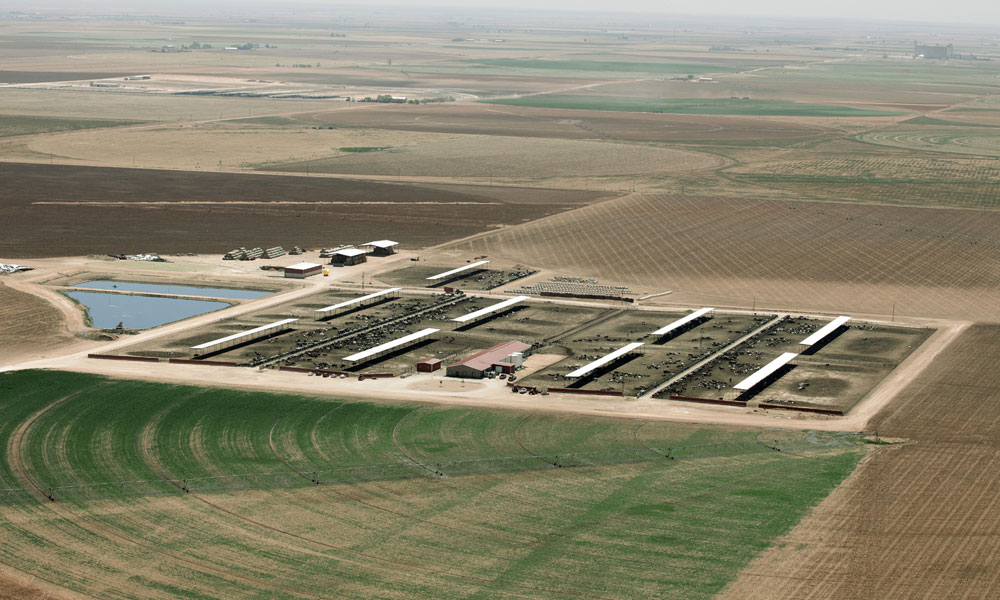
Advocacy Group Takes to the Air to Challenge Organic Farming Practices
With a recent investigative report featuring a series of aerial photos, the nonprofit Cornucopia Institute has drawn attention to the increasingly corporate nature of organic farming. Although the report raises important questions, industry figures suggest that the group's research is far from perfect.
The definition of “organic,” like “natural” and similar terms, has long caused confusion at the supermarket, fueling debate over what it actually means.
One nonprofit group has taken an unusual approach to questioning whether goods that reach store shelves are truly organic—and it involves taking to the skies. Over the summer, the nonprofit Cornucopia Institute, which opposes what it sees as the co-opting of organic farming by big business, took overhead photos of 14 organic dairies and chicken coops across the country.
The photos reveal “a systemic pattern of corporate agribusiness interests operating industrial-scale confinement livestock facilities providing no legitimate grazing, or even access to the outdoors, as required by federal organic regulations,” according to the report.
The photos underline something that has likely become obvious in recent years: As organic food has gained popularity, organic farms have grown far beyond the modest scale that the term “organic” implies. As a result, the facilities are starting to look more industrial than the open-air farms that consumers imagine. According to Cornucopia, this shift suggests that U.S. Department of Agriculture (USDA) standards for organic farms aren’t high enough.
“If you showed these pictures to people buying milk and eggs at Whole Foods, they’d be appalled,” Cornucopia cofounder Mark Kastel told The Washington Post. “For the past 10 years, we have observed systemic violations of the law at numerous industrial-scale livestock facilities representing themselves as ‘organic.'”
False Positives
While the effort succeeded at drawing attention to Cornucopia’s work—thus far, the report, released last week, has more than 20,000 shares on Facebook alone—the report has its critics.
NPR reporter Dan Charles, for example, noted that the aerial photos may picture farms that aren’t actually organic. In at least two cases, Charles notes, the facilities are either no longer owned by the company in question or no longer produce organic products.
And in some cases, the farms and ranches had evidence to directly refute Cornucopia’s claims that the animals on the farms did not have access to outdoor facilities.
An Association’s Take
In a comment to The Washington Post, the Organic Trade Association, which encourages high standards for organic farming industrywide, said aerial photos alone are not enough to prove compliance with USDA standards.
“We continue to have confidence in the oversight of organic operations and in the checks and balances built into the organic certification system, which includes regular inspections of operations, regular accreditation audits of certifiers, and complaint investigation procedures,” the group said in a statement.
Nonetheless, Cornucopia’s Kastel believes the existence of the large-scale organic farms proves that industry standards have become lax—something the organization pledges to challenge.
“Since President Obama was elected, they’ve greatly expanded the budget of the [USDA National Organic Program], added competent staff, and said all the right things,” Kastel said in the report. “These people know better, but they have sided with the powerful industry lobby, the Organic Trade Association, and institutionalized corruption that started before their administration took office.”
Redland Dairy, a Texas facility that the Cornucopia Institute featured in an investigation. An NPR report refuted the farm's organic status. (Cornucopia Institute)






Comments